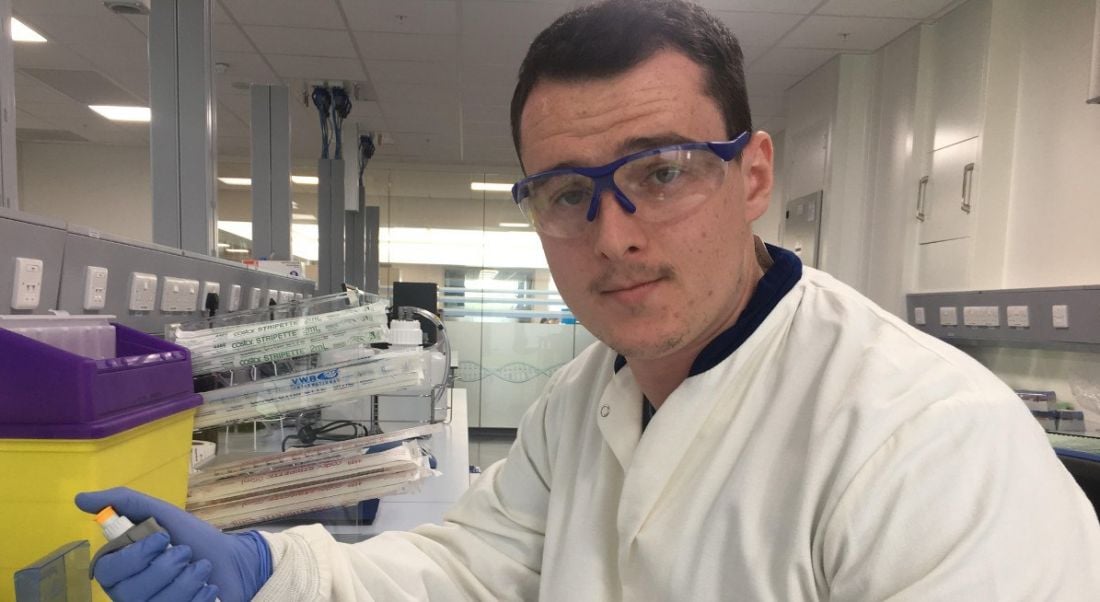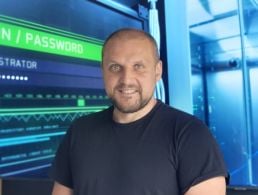We chatted to Lloyd Ellis-Dempsey from BMS about what surprised him most when he started work with the bioinformation team.
Everyone believes they understand what ‘lab work’ entails – you probably visualise certain key pieces of scientific equipment, such as microscopes, beakers and plastic goggles – but do you think you’d be able to know how to structure a day working in a busy lab?
Did you know, for example, that there’s a huge amount of paperwork involved? This was one of the most surprising takeaways from when we spoke to Lloyd Ellis-Dempsey, a QC biologics analyst with the bioanalytical team at BMS.
Ellis-Dempsey took us through some of the less-intuitive elements of lab work, such as the importance of communication and time management. He also explained why BMS was the perfect place to start his career.
What is your role within BMS?
My role is a QC biologics analyst within the bioanalytical team.
If there is such a thing, can you describe a typical day in the job?
I usually get to work around 8am and the first thing I do is check my emails. Once I’ve finished this, I will check the schedule to see what I’m doing for the day and start prepping. Before breakfast, we have a team meeting to discuss what needs to be done and if there were any issues the previous day.
After breakfast, I’ll generally start my tests. I work in the bioanalytical QC team, so the tests we do generally involve determining the binding and potency of BMS products to ensure they do what they are meant to.
Apart from the actual tests, I’ll generally have other lab duties to complete. These duties can range from a review of results generated by other analysts, to drafting and updating documents, equipment maintenance, and making sure the lab is stocked with all the consumables we need.
What types of project do you work on?
I’m currently involved in three main areas: commercial release testing, lab set-up and method technical transfer.
Commercial release testing involves the testing of drug product batches made across the BMS network for release into global markets. We are ensuring that the products made by BMS are safe and effective. It is great to be able to really make a difference to patient lives when we are able to release batches on time to ensure that there is a supply of life-altering medicines.
I’m also involved with method technical transfers from the BMS expert sites to Cruiserath. This type of work is really interesting because you really get to dig deep into what is involved in moving a testing method across sites, and also into how the method works.
What skills do you use on a daily basis?
As there is a lot of project work, it is important to be able to work as part of a team and communicate effectively. Many of the projects I have been involved with to date have required me to be able to work with many departments and try and bring all the best ideas forward.
One of the great things about BMS is that no matter what your experience level is, if you have an idea or opinion, it will be looked at. This gives people the confidence to talk up and make a difference. Good time management is also a skill that comes in handy with project work and also in lab testing. There can be tight timelines to meet and a few different parts to do at the same time. Time management in the lab is important to ensure that we get batches tested in time to release products to our patients.
Working in the lab, I do rely on the lab skills I learned in college a lot. The whole team, no matter the experience, is constantly improving, learning new skills and sharing knowledge in the lab to help our own and our team’s development.
What is the hardest part of your working day?
Trying to organise my time around all the projects that I am involved with can sometimes be a challenge. I have to try and prioritise what is the most important and work it around the daily lab schedule. It has been a great opportunity for me to improve my time management skills.
Do you have any productivity tips that help you through the working day?
I generally try to write a to-do list each morning. It helps me to prioritise and keep track of what I have to do.
Generally, for bigger projects and tasks, I will break them into smaller pieces. I find this especially helpful when bigger tasks have plenty of components to them. It also helps me make sure I don’t lose track of what needs to be done.
It is important to be realistic with what can be done in a day. I find that if you give yourself too much to try and get done, you may end up rushing and could make mistakes.
When you first started this job, what were you most surprised to learn was important in the role?
I was with BMS for a student internship while I was in college in DCU, so I had a bit of an idea of what the role would involve when I came into it.
Something that can be surprising is the amount of paperwork that has to be completed. Although the paperwork can sometimes take a long time, it is an essential part of the role and keeps us accountable for what we do, which is really important to ensure all the products BMS makes are fully safe for patients.
How has this role changed as the tech sector has grown and evolved?
This has been my first role since leaving college, so I don’t have any experience in the sector previously, but one exciting change is seeing how Ireland is really becoming a hub for the biopharmaceutical industry. The industry is really growing in Ireland and it is extremely exciting to be a part of it.
What do you enjoy most about the job?
The work is always different. Every day brings something new, which keeps things interesting. I’m also lucky to work with a great team where we all work really well together to get products to patients. It is a great feeling knowing that the work we do really makes a difference to the lives of people throughout the world.




